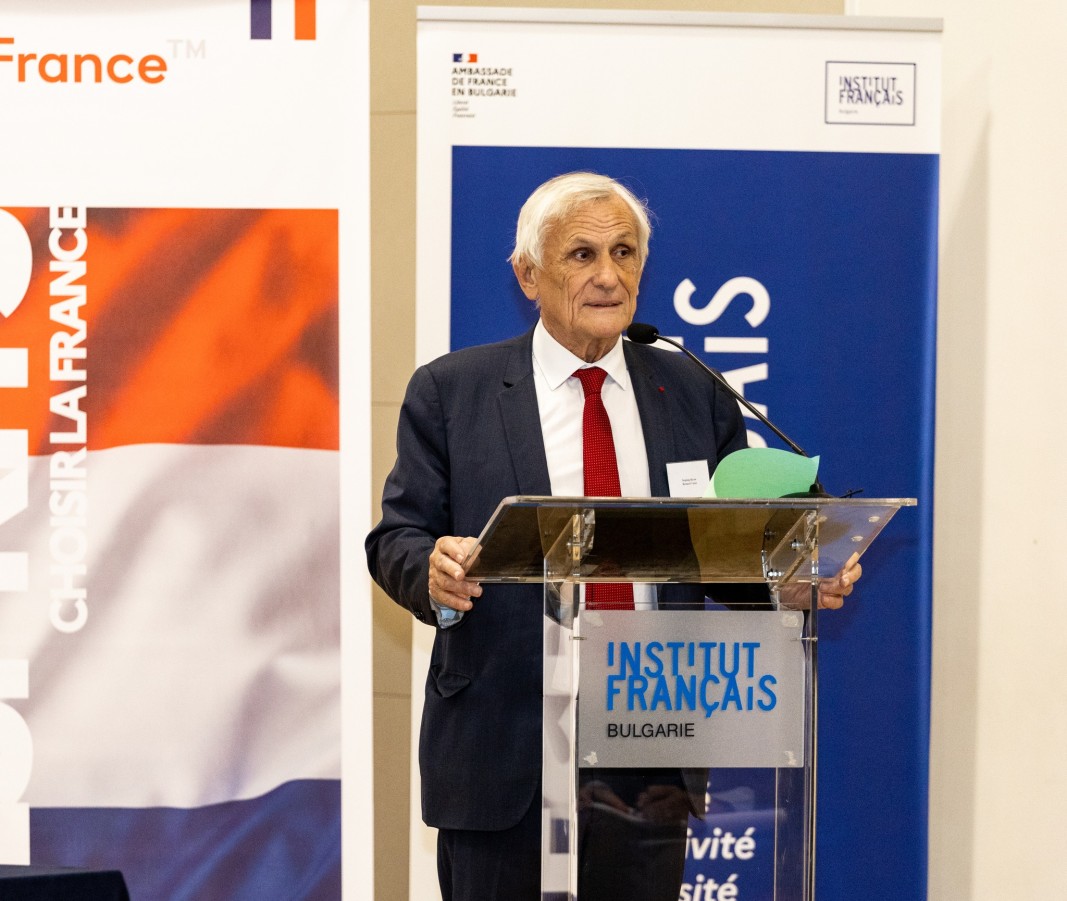In Bulgaria there are laws, the toolbox is there, but it is not being used, says Bernard Vatier, chairman of the Paris Bar. The International Bar Association Conference (CIB) he is chairman of initiated a conference in Sofia with a focus on fighting corruption as a perpetually renewed challenge. The forum was organized by the French embassy in Bulgaria and the French Institute on the occasion of the 10th anniversary of the establishment of the Club of French-speaking Lawyers in Sofia and the 30th anniversary since Bulgaria became a member of the International Organization of La Francophonie.
Lawyers, magistrates and representatives of public institutions debated on the experience and the current reforms taking place in France and in Bulgaria.
“The aim of the conference is to make a summary of the existing means for fighting corruption in Bulgaria and in France, two countries members of the EU, and from the experience of one, the other can draw on the practice that is best for them,” Bernard Vatier says in an interview with Radio Bulgaria. 
He says the proficiency accumulated in other countries must be used so as to boost the tools for fighting corruption which Bulgaria already has.
“I was very impressed by what the former deputy minister of justice said (Andrey Yankulov – editorial note). He explained that the legal provisions are there, but that there is not much point to them because the behaviour has not changed. That is, I believe, the big problem connected with corruption. Corruption is a question of upbringing. People get accustomed to corruption, and these models of behaviour need to change.”
Fighting corruption in this sense is based on upbringing or prevention, but also on sanctions, i.e. justice has to sanction it. Punishment mechanisms need to be put in place. 
“For the purpose, magistrates have to be independent,” Bernard Vatier goes on to say. “This takes us back to the problem of the independence of the justice system and the role of the prosecutor’s office. We have to be very alert because if there is no punishment corruption acquires legitimacy. If I don’t get caught I have every right to go on. With corruption, there is one terrible phenomenon, and it is its stealth and the legitimacy that the person practicing it gradually acquires. This practice must be put an end to, and for this to happen we need an organized prosecutor’s office.”
In a country which does not fight corruption, democracy is constantly under threat of collapse, Bernard Vatier says. On the one hand, economic growth is hampered, and on the other – the end result is despotism by the people who wield these corruption tools.
To what an extent should we look for corruption practices in events such as the hijacking of the ship Galaxy Leader, with two Bulgarian crew members on board? 
Here is Bernard Vatier with the differences between piracy and corruption:
“With piracy the criminal act is visible, we are watching, for example, footage on TV. The same is true of theft. That theft that has been committed is there to be seen, even if we don’t know who the thief is. With corruption the crime is absolutely discrete. You see, it is easy to prosecute a pirate or a thief, but it is very difficult to bring someone who has committed corruption to justice, because that is something that is not visible. And that is the problem. That is why tools are needed that will allow there to be transparency and will bring to light possible instances of corruption,” Bernard Vatier says in conclusion.
Translated and posted by Milena Daynova
Photos: French Institute in Bulgaria
On November 8 in Hall 11 of the National Palace of Culture, Bulgaria’s best masters and artisans will be awarded for the third time. The founder and driving force behind the “Creator of the Year” initiative is Nikolay Traykov, who visited “Radio..
Sofia has a new spot for curious minds. Phenomena is a museum where science and art come together — a place to experiment, discover, and get hands-on with the wonders of how the world works. Rooted in the spirit of STEAM education — that’s Science,..
‘In my view, the period between Bulgaria’s liberation and 1944 was especially significant because I believe that the country was then on the right developmental path,’ says collector Filip Milanov. ‘That era produced many people of exceptional integrity..
Everyone knows that as soon as temperatures start going down it is pickle-making season. Making preserves at home is a time-honoured and widespread..
Minister of the Environment and Water Manol Genov has granted two centuries-old trees – each of which approximately 200 years old – protected status,..

+359 2 9336 661
